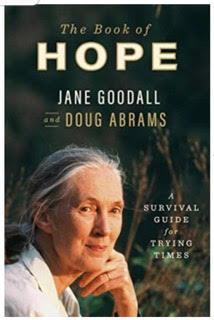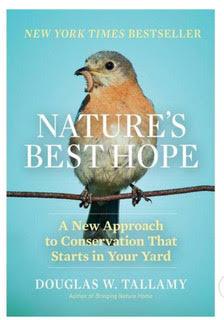Environmental book picks complement Earth Day April 22
Local environmental activist Judy Rolfe engages the public through her social media presence and documentaries.
In recognition of Earth Day Friday, April 22, Rolfe recommends a few books to crack open about conservation, sea level rise, trees, organic farming, native species planting, climate communication and hope.
“A Sand County Almanac” by Aldo Leopold is Rolfe’s all-time favorite; she calls it, “... some of the finest nature writing since Thoreau. I re-read it every year.” To learn more, go to aldoleopold.org.
Next she recommends “Nature's Best Hope: A New Approach to Conservation that Starts in Your Yard,” by Douglas W. Tallamy.
In "Animal, Vegetable, Miracle,” author Barbara Kingsolver and her family abandoned the industrial-food pipeline to live a rural life, vowing that for one year, they'd only buy food raised in their own neighborhood, grow it themselves, or learn to live without it.
"All We Can Save” is an anthology of writings by 60 women at the forefront of the climate movement who are harnessing truth, courage and solutions to lead humanity forward.
Additional recommendations include "The Water Will Come: Rising Seas, Sinking Cities and the Remaking of the Civilized World," by Jeff Goodell; and "Braiding Sweetgrass: Indigenous Wisdom, Scientific Knowledge, and the Teaching of Plants,” by Robin Wall Kimmerer.
In “The Book of Hope," by Jane Goodall and Doug Abrams, the world's most famous living naturalist writes about one of the most sought-after and least understood elements of human nature: hope.
In “The Hidden Life of Trees,” Peter Wohlleben shares his deep love of woods and forests, and explains the amazing processes of life, death and regeneration he has observed in the woodland along with the scientific facts behind these wonders.
Rolfe recommends “Saving Us” by Katharine Hayhoe as essential reading, especially for those who want to do something but don’t quite know how to proceed.
In order to stave off the mass extinction of species, including humans, “Half Earth” author Edward O. Wilson said people must move swiftly to preserve the biodiversity of the planet.
























































